Food security is a complex sustainable development issue, that is intricately linked to health, sustainable economic development, environment, social justice and trade. Food security, as defined by the World Food Summit of 1996, exists “when all people at all times have access to sufficient, safe, nutritious food to maintain a healthy and active life”. Food Security is only possible when the people who produce our food are able to earn a sustainable living wage growing, producing, processing, transporting, retailing, and serving sustainable foods. It is an essential component of sustainable communities 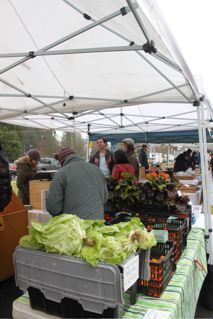 as it contributes to the mental and physical health of community members and community resilience by reducing vulnerabilities to exogenous shocks. In the Mandate of the Special Rapporteur on the Right to Food, Olivier De Schutter discusses that an increasing number of people across Canada remain unable to meet their basic food needs. In 2007/2008, approximately 7.7 per cent of households in Canada reported experiencing moderate or severe food insecurity and approximately 1.92 million people in Canada, aged 12 or older, lived in food insecure households in 2007/2008.1
as it contributes to the mental and physical health of community members and community resilience by reducing vulnerabilities to exogenous shocks. In the Mandate of the Special Rapporteur on the Right to Food, Olivier De Schutter discusses that an increasing number of people across Canada remain unable to meet their basic food needs. In 2007/2008, approximately 7.7 per cent of households in Canada reported experiencing moderate or severe food insecurity and approximately 1.92 million people in Canada, aged 12 or older, lived in food insecure households in 2007/2008.1
Our first Solutions Agenda e-Dialogue on Food Security brings leading Canadian thinkers, activists and academics together to discuss key societal issues around food to explore sustainable and innovative models that are helping communities explore and enhance food security. Register for e-Dialogues here.
Discussion
The complete discussion can be downloaded here.
Innovators Descriptions
Below are brief descriptions of four leading innovations helping to shape a healthier food agenda.
Santropol Roulant was founded in 1995 by Chris Godsall and Keith Fitzpatrick in reaction to high youth unemployment in Montreal and persistent relegation of health care services and responsibilities from the federal to provincial government. Godsall and Fitzpatrick, both young adults when devising the initiative, observed many of their peers moved from the city in search of work, and thus addressed this issue by accessing youth employment grants to create a meals-on-wheels service operated and managed by employees of the young adult demographic. Since its inception, Santropol Roulant has grown and diversified its programs and services to include education and outreach, bicycle services, urban agriculture and neighbourhood markets. The initiative assumes a holistic approach to community sustainability by using food-related projects as a vessel for connecting people of various age and cultural groups in collaborative efforts for fostering healthy communities.
In late 2009, Santropol Roulant moved to a larger space on Rue Roy est, in downtown Montreal, when their lease for their original office in the Plateau neighbourhood ended. The aim of the relocation was to use the larger space and central location to expand their vision and programs and to increase their influence on the community and city of Montreal.
Formerly the Ottawa Food Security Council, Just Food emerged from concerns and efforts relating to and addressing food security, which date as far back as the late-1990s and include dialogue between community members and city staff, development of publications on food security in Ottawa, inventory of local food security programs, and consultations with food security experts. In 2004, food security efforts began to shift from policy focus to project development, and, in 2006, the Ottawa Food Security Council transformed to Just Food and launched its website. Just Food incorporated as a non-profit in 2011, and currently, operates with a full-time staff of 3.5 (and 8 interns) and an approximate annual budget of $500,000. Just Food engages in a wide range of project-based initiatives, research, public education and advocacy, and the organization is committed to its vision consisting of,
- all people, at all times, have physical and economic access to sufficient, safe, nutritious and culturally acceptable food for an active and healthy life;
- principles of ecological sustainability, sustainable livelihoods for food providers, and social justice are upheld;
- the local population is actively involved in all aspects of the food system, including food-related decision-making processes at municipal, regional, and national levels; and,
- food is celebrated as central to both culture and community.
Food Tank: The Food Think Tank, was founded by Chicago-based food and agriculture experts, Ellen Gustafson and Danielle Nierenberg. Their website was launched in early 2013 and acts an information hub for food innovations and research. Food Tank plans to connect with communities through in-person visits of their staff to various communities, for the purpose of research, learning of new innovations and sharing success stories. In addition, they plan to organize events that bring together stakeholders, including farmers, businesses, workers, non-profits, local activists, academics, policy-makers, industry, journalists, community organizations, and the funding and donor communities, for open discussions on food systems and innovations. Food Tank's objective is to inform, share, and scale up innovations that contribute to the alleviation of hunger and poverty, while simultaneously protect the environment.
Sole Food is a Vancouver-based organization that was founded by Michael Ableman and Seann Dory with the aims of transforming vacant urban land into street farms that grow nutritious foods and employing locals of low-income neighbourhoods. This initiative empowers individuals with limited resources, drug addiction and/or mental illness by providing employment and training in agricultural practices, and Sole Food uses employment as an outreach tactic through building a sense of community in marginalized individuals and neighbourhoods. Sole Food consists of a network of farms in or near the downtown eastside of Vancouver and currently employs 25 individuals. The farms supply nutritious food to city residents through pick-up or delivery methods.
Discussion Participants
 Professor Ann Dale, Moderator, holds a Canada Research Chair in Sustainable Community Development at Royal Roads University, School of Environment and Sustainability. A former Trudeau Fellow Alumna (2004), she is a Fellow of the World Academy of Arts and Science, chairs the Canadian Consortium for Sustainable Development Research (CCSDR), a Board Member of the World Fisheries Trust. and the founder of the National Environmental Treasure (the NET). Current research interests include governance, social capital and agency, biodiversity conservation, place-based and virtual sustainable communities. She is a recipient of the 2001 Policy Research Initiative Award for Outstanding Contribution to Public Policy for her book, At the edge: sustainable development in the 21st century. Professor Dale is actively experimenting with research dissemination and social media, and has launched HEADTalks.
Professor Ann Dale, Moderator, holds a Canada Research Chair in Sustainable Community Development at Royal Roads University, School of Environment and Sustainability. A former Trudeau Fellow Alumna (2004), she is a Fellow of the World Academy of Arts and Science, chairs the Canadian Consortium for Sustainable Development Research (CCSDR), a Board Member of the World Fisheries Trust. and the founder of the National Environmental Treasure (the NET). Current research interests include governance, social capital and agency, biodiversity conservation, place-based and virtual sustainable communities. She is a recipient of the 2001 Policy Research Initiative Award for Outstanding Contribution to Public Policy for her book, At the edge: sustainable development in the 21st century. Professor Dale is actively experimenting with research dissemination and social media, and has launched HEADTalks.
 Chad Lubelsky is Executive Director of Santropol Roulant. Prior to joining the Roulant, Chad's professional experience includes working as an Assignment Editor for NBC news in San Francisco, managing global Internet Rights advocacy for the South African based Association for Progressive Communications and developing leadership and community engagement programs for the Canada Millennium Scholarship Foundation. Chad holds a BA in Communications and Master Degrees in Communication and Leadership, and has lived and worked in Japan, the United States, Hungary, England, Morocco and Canada. Chad also currently serves as Founding Trustee of the Montreal Awesome Foundation, a Mentor for the Canadian Merit Scholarship Foundation and as a Board Member of Apathy is Boring.
Chad Lubelsky is Executive Director of Santropol Roulant. Prior to joining the Roulant, Chad's professional experience includes working as an Assignment Editor for NBC news in San Francisco, managing global Internet Rights advocacy for the South African based Association for Progressive Communications and developing leadership and community engagement programs for the Canada Millennium Scholarship Foundation. Chad holds a BA in Communications and Master Degrees in Communication and Leadership, and has lived and worked in Japan, the United States, Hungary, England, Morocco and Canada. Chad also currently serves as Founding Trustee of the Montreal Awesome Foundation, a Mentor for the Canadian Merit Scholarship Foundation and as a Board Member of Apathy is Boring.
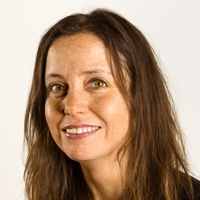 Danielle Nierenberg is co-founder of FoodTank: The Food Think Tank . She is an expert on sustainable agriculture and food issues. She recently spent two years traveling to more than 35 countries across sub-Saharan Africa and Asia looking at environmentally sustainable ways of alleviating hunger and poverty. Her knowledge of global agriculture issues has been cited widely in more than 3,000 major publications including The New York Times, USA Today, the International Herald Tribune, The Washington Post, BBC, the Guardian(UK), the Mail and Guardian (South Africa), the East African (Kenya), TIME magazine, Reuters, Agence France Presse, Voice of America, the Times of India, and other major publications. Danielle worked for two years as a Peace Corps volunteer in the Dominican Republic and also currently serves as the food security adviser for Citizen Effect (an NGO focused on sustainable development projects worldwide). She holds an M.S. in Agriculture, Food, and Environment from Tufts University and a B.A. in Environmental Policy from Monmouth College.
Danielle Nierenberg is co-founder of FoodTank: The Food Think Tank . She is an expert on sustainable agriculture and food issues. She recently spent two years traveling to more than 35 countries across sub-Saharan Africa and Asia looking at environmentally sustainable ways of alleviating hunger and poverty. Her knowledge of global agriculture issues has been cited widely in more than 3,000 major publications including The New York Times, USA Today, the International Herald Tribune, The Washington Post, BBC, the Guardian(UK), the Mail and Guardian (South Africa), the East African (Kenya), TIME magazine, Reuters, Agence France Presse, Voice of America, the Times of India, and other major publications. Danielle worked for two years as a Peace Corps volunteer in the Dominican Republic and also currently serves as the food security adviser for Citizen Effect (an NGO focused on sustainable development projects worldwide). She holds an M.S. in Agriculture, Food, and Environment from Tufts University and a B.A. in Environmental Policy from Monmouth College.
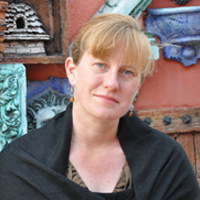 Dr. Patricia Ballamingie is a founding Board member of Just Food and a professor at Carleton University, cross-appointed in the Department of Geography and Environmental Studies and the Institute of Political Economy. She supervises a large cohort of graduate students, most of whom focus on issues related to sustainable community, broadly interpreted, or local food systems, more specifically. She brings a range of professional experiences in the public, private and non-profit sectors to her research and teaching. Dr. Ballamingie is currently part of two collaborative research networks. First, as a member of the Nourishing Ontario: Sustainable Local Food Systems Research Group (led by Dr. Alison Blay-Palmer at Wilfred Laurier University), she serves as co-lead (with Dr. Peter Andrée) of the Eastern Ontario Advisory Committee. Second, she also serves as co-lead (with Todd Barr, Executive Director of the Trent Centre for Community-Based Education) of the Community Environmental Sustainability Hub – part of a broader SSHRC Partnership Grant, Community First: Impacts of Community Engagement.
Dr. Patricia Ballamingie is a founding Board member of Just Food and a professor at Carleton University, cross-appointed in the Department of Geography and Environmental Studies and the Institute of Political Economy. She supervises a large cohort of graduate students, most of whom focus on issues related to sustainable community, broadly interpreted, or local food systems, more specifically. She brings a range of professional experiences in the public, private and non-profit sectors to her research and teaching. Dr. Ballamingie is currently part of two collaborative research networks. First, as a member of the Nourishing Ontario: Sustainable Local Food Systems Research Group (led by Dr. Alison Blay-Palmer at Wilfred Laurier University), she serves as co-lead (with Dr. Peter Andrée) of the Eastern Ontario Advisory Committee. Second, she also serves as co-lead (with Todd Barr, Executive Director of the Trent Centre for Community-Based Education) of the Community Environmental Sustainability Hub – part of a broader SSHRC Partnership Grant, Community First: Impacts of Community Engagement.
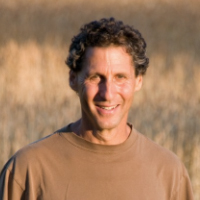 Michael Ableman is a farmer, author, and photographer, and a co-founder of Sole Food. He is also the founder and executive director emeritus of The Center for Urban Agriculture at Fairview Gardens, a non-profit organization based on the one of the oldest and most diverse organic farms in southern California where he farmed from 1981 - 2001. He is the author and photographer of From the Good Earth; A celebration of growing food around the world (Abrams, 1993), On Good Land: The autobiography of an urban farm (Chronicle Books, 1998), and Fields of Plenty: A farmer’s journey in search of real food and the people who grow it (Chronicle Books 2005). Ableman is the subject of the award winning PBS film Beyond Organic narrated by Meryl Streep. Ableman lives and farms at the historic 120 acre Foxglove Farm where he also directs the Center For Arts, Ecology, and Agriculture
Michael Ableman is a farmer, author, and photographer, and a co-founder of Sole Food. He is also the founder and executive director emeritus of The Center for Urban Agriculture at Fairview Gardens, a non-profit organization based on the one of the oldest and most diverse organic farms in southern California where he farmed from 1981 - 2001. He is the author and photographer of From the Good Earth; A celebration of growing food around the world (Abrams, 1993), On Good Land: The autobiography of an urban farm (Chronicle Books, 1998), and Fields of Plenty: A farmer’s journey in search of real food and the people who grow it (Chronicle Books 2005). Ableman is the subject of the award winning PBS film Beyond Organic narrated by Meryl Streep. Ableman lives and farms at the historic 120 acre Foxglove Farm where he also directs the Center For Arts, Ecology, and Agriculture
 Rebecca Foon is an urban planner dedicated to integrating a holistic understanding of sustainability in growing healthy communities. She is an accomplished organizer and facilitator, sustainability management systems creator, sustainability assessment leader, and green building consultant. She has extensively researched water-related environmental issues in North America and India in partnership with the Indian Institute of Management. More recently, she worked as a sustainability/creative consultant for Planet Green's urban environment television series Wa$ted (Discovery Challen), and is the LEED coordinator for Proment Development's new residential development project targeting LEED gold in Montreal, Canada.
Rebecca Foon is an urban planner dedicated to integrating a holistic understanding of sustainability in growing healthy communities. She is an accomplished organizer and facilitator, sustainability management systems creator, sustainability assessment leader, and green building consultant. She has extensively researched water-related environmental issues in North America and India in partnership with the Indian Institute of Management. More recently, she worked as a sustainability/creative consultant for Planet Green's urban environment television series Wa$ted (Discovery Challen), and is the LEED coordinator for Proment Development's new residential development project targeting LEED gold in Montreal, Canada.
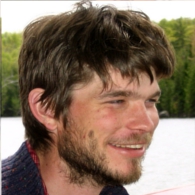 Yuill Herbert is a founding director with Sustainability Solutions Group (SSG). Yuill has worked on sustainability consulting projects in the spheres of community planning, sustainability assessments and green buildings. Major projects include the development of an open source model to evaluate the climate change impacts of municipal plans, the development of a carbon neutral course for Cascadia Green Building Council and a sustainability assessment for Concordia University. Yuill also helped introduce the LEED for Homes rating system in Canada. He has advised municipal, provincial and federal governments on policies related to sustainability and is active in sustainable development research.
Yuill Herbert is a founding director with Sustainability Solutions Group (SSG). Yuill has worked on sustainability consulting projects in the spheres of community planning, sustainability assessments and green buildings. Major projects include the development of an open source model to evaluate the climate change impacts of municipal plans, the development of a carbon neutral course for Cascadia Green Building Council and a sustainability assessment for Concordia University. Yuill also helped introduce the LEED for Homes rating system in Canada. He has advised municipal, provincial and federal governments on policies related to sustainability and is active in sustainable development research.
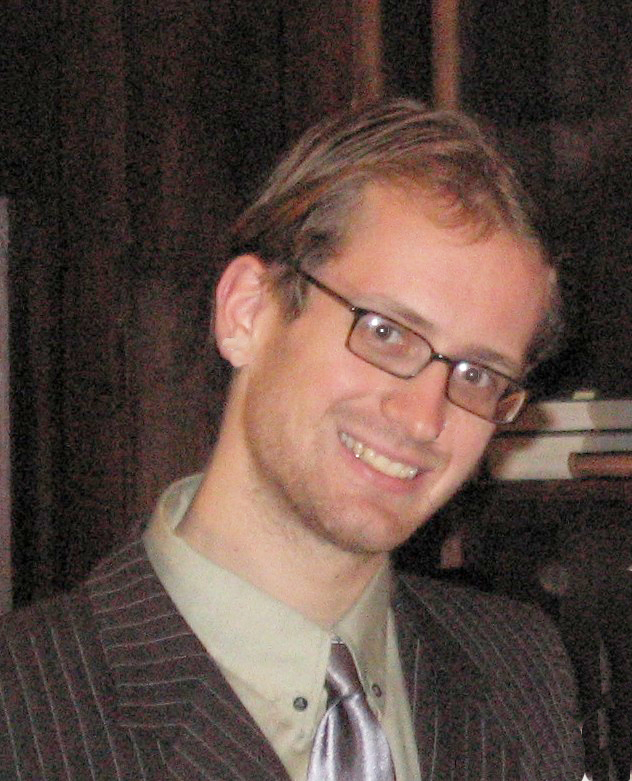 Rob Newell completed an undergraduate in Biology and Statistics (University of Victoria), but developed a keen interest in the communication of environmental trends and sustainability ideas over the last six years while working in the design, development and delivery of environmental education programs and completing a graduate thesis on approaches to effective environmental communications (MA in Environment and Management, Royal Roads University). Rob is committed to exploring and discovering new methods of communicating sustainability to broad and diverse audiences, and his work has included developing environmental education programs for settlement agencies and project leading in Asia, Africa, and the South Pacific. Rob is involved in developing creative and interactive ways of disseminating CRC research ideas and getting the greater public involved with the research program.
Rob Newell completed an undergraduate in Biology and Statistics (University of Victoria), but developed a keen interest in the communication of environmental trends and sustainability ideas over the last six years while working in the design, development and delivery of environmental education programs and completing a graduate thesis on approaches to effective environmental communications (MA in Environment and Management, Royal Roads University). Rob is committed to exploring and discovering new methods of communicating sustainability to broad and diverse audiences, and his work has included developing environmental education programs for settlement agencies and project leading in Asia, Africa, and the South Pacific. Rob is involved in developing creative and interactive ways of disseminating CRC research ideas and getting the greater public involved with the research program.
Resources and References
Worldwatch Institute Article. Year in Review: 10 Things You Should Know about Food and Agriculture in 2012
Sustainable Food Whiteboard. Developed by students of the Masters in Environment and Management program at Royal Roads University, this project serves as a virtual hub for projects and ideas on re-localizing food.
Feeding Nine Billion: A Solution to the Global Food Crisis. An animation featuring Dr. Evan Fraser, Canada Research Chair in Global Human Security, discussing potential solutions to the increasing strain on global food resources.
Scale: How far did your food travel today?. Created through a partnership between the Community Research Connections program and students of Royal Roads University's Professional Communications program, this video examines the scale of our food systems by contrasting small-scale to large-scale.
Definition of a Sustainable Food System is a compilation of definitions for sustainable food systems, prepared by Prof. Ann Dale for the food security e-Dialogue.
Resilient Communities is a website that shares information and ideas on how to contribute to community resilience against and independence from exogenous shocks.
Farmers' Markets and Local Food Systems is a case study produced through the Community Research Program, looking at local food systems in the Great Victoria Regional District.
An interactive animation built using ShiftN's systems map on obesity highlighting the systems complexities of nutrition and physical health.
Food Secure Canada (press release index). A page listing press releases creating Food Secure Canada, a non-profit committed to the food security movement in Canada.
Food Forward is a Toronto-based initiative focused on educating the public on and advocating for healthy food and communities.
Local Food Plus (LFP) is a non-profit organization committed to promoting local sustainable food systems through certification programs, public outreach, and network building.
United Nations 2012. Retrieved January 8th, 2013 from: http://www.srfood.org/images/stories/pdf/officialreports/201205_canadap…
Click here to return to Solutions Agenda homepage.